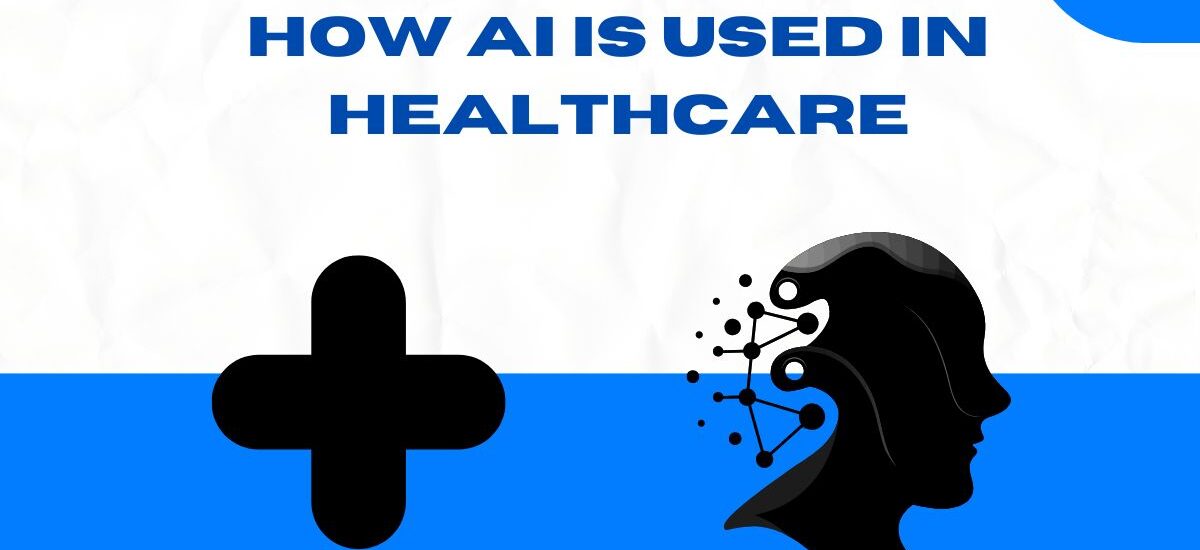


How AI is Used in Healthcare : Artificial Intelligence (AI) is revolutionizing industries worldwide, and healthcare is no exception. From diagnostics to treatment, AI is transforming how healthcare is delivered, enhancing both precision and efficiency. In this article, we’ll explore the many ways AI is being utilized in healthcare and why it is pivotal to the future of medicine.
Artificial intelligence is the application of machine learning, natural language processing (NLP), and other computational tools to emulate human intelligence. Artificial intelligence in healthcare facilitates quick processing of huge volumes of data, offering insights and automating work that would take manual effort otherwise. AI differs from other traditional technologies in that it can learn and adapt based on new information, and this makes it an effective tool for predictive and personalized care.
AI has demonstrated vast potential in diagnostics, especially in medical imaging and early disease detection.
AI algorithms can interpret X-rays, MRIs, CT scans, and other medical images with high accuracy. AI algorithms assist radiologists in identifying anomalies quicker and more effectively. For example, AI-based tools can point out early tumor signs that may not be detected by the human eye.
AI is capable of examining patterns in large data sets, detecting diseases such as cancer or cardiovascular issues sooner than conventional methods. Not only does this enhance patient outcomes but also minimizes the cost of treating late-stage disease.
With AI, medical professionals are able to apply predictive analytics to anticipate possible health threats. Based on a patient’s medical history and lifestyle information, AI systems can anticipate the risk of diseases such as diabetes, allowing physicians to act before the disease occurs.
One of the most significant breakthroughs in AI is its ability to provide personalized treatment plans. AI can analyze an individual’s genetic makeup, environment, and lifestyle to suggest the most effective treatment. This level of precision was unthinkable a decade ago.
AI is accelerating the process of drug discovery by foretelling the behavior of some molecules. Whereby years were taken before, now months are sufficient to do the same, cutting the time to market for life-saving drugs sharply.
Robotic Surgeries: AI-Driven Precision
AI is revolutionizing surgery with robotic-assisted surgeries. These machines enable greater precision, reduced incisions, and quicker recovery for patients. AI can help surgeons perform complicated surgeries with greater success.
With the further development of AI, we will see more independent surgical systems, where AI has a direct role in making decisions in real time during surgery, reducing human error.
AI-powered virtual assistants, such as voice assistants and chatbots, are enhancing patient care through the availability of 24/7 healthcare guidance. Virtual assistants can perform tasks such as routine scheduling, responding to questions, and even offer simple diagnostic assistance.
Wearable technologies with AI enable continuous patient monitoring, particularly in patients with chronic diseases. They can monitor vital signs and notify healthcare professionals of any possible issues in real-time.
The healthcare sector is producing massive data on a daily basis. AI assists in data management and data analysis to gain important insights. For instance, AI systems may search through electronic health records and determine trends that may result in improved treatment options.
Although AI is very good at managing data, it also causes fear regarding privacy and data safety. Healthcare professionals should take care that patient data is kept secret when they use AI technologies.
AI is becoming more effective in telemedicine by offering virtual consultations and remote monitoring. Patients can seek medical guidance without requiring a visit to a hospital, making it easier for them to get healthcare, particularly in remote locations.
The capacity of AI to process huge volumes of data makes it a very valuable tool for public health management. AI can forecast outbreaks of disease as well as track trends in health on a massive scale. Furthermore, AI-based applications can provide individuals with personalized lifestyle guidance, enabling them to avoid diseases before they develop.
The biggest challenge of AI in healthcare is ethics. As AI systems become more decision-making, issues related to accountability, transparency, and bias come up. It is very important to make sure AI decisions are unbiased and fair.
With AI being used to deal with sensitive patient information, concerns arise regarding its use and storage. It is important that AI systems are adhering to healthcare regulations, such as HIPAA, in order to maintain the privacy of the patient.
AI will have a significant place in the future of healthcare, from diagnostics to treatment. As AI technologies continue to improve, we can anticipate even more predictive and personalized healthcare solutions that can save lives and lower costs.
AI is transforming the healthcare landscape. From diagnostics to personalized treatment plans, AI’s ability to analyze vast amounts of data quickly and accurately makes it an invaluable tool. While there are challenges and ethical concerns, the potential benefits of AI in healthcare are undeniable. As AI continues to evolve, its role in shaping the future of healthcare will only grow.
What are the benefits of AI in healthcare?
AI enhances accuracy of diagnostics, individualizes treatment, and increases patient care efficiency.
How does AI contribute to diagnostics?
AI assists in the analysis of medical images and data to make quicker, more precise diagnoses.
Can doctors be replaced by AI in the future?
AI will most likely augment and not replace doctors, offering capabilities to improve decision-making.
What are the dangers of AI in healthcare?
The most significant risks are data privacy, ethics, and bias in decision-making.
How can AI enhance patient outcomes?
AI enhances results by facilitating early diagnosis, customized treatment, and ongoing patient monitoring.
You May Also Like : God Of SEO, Yatresh Sharma